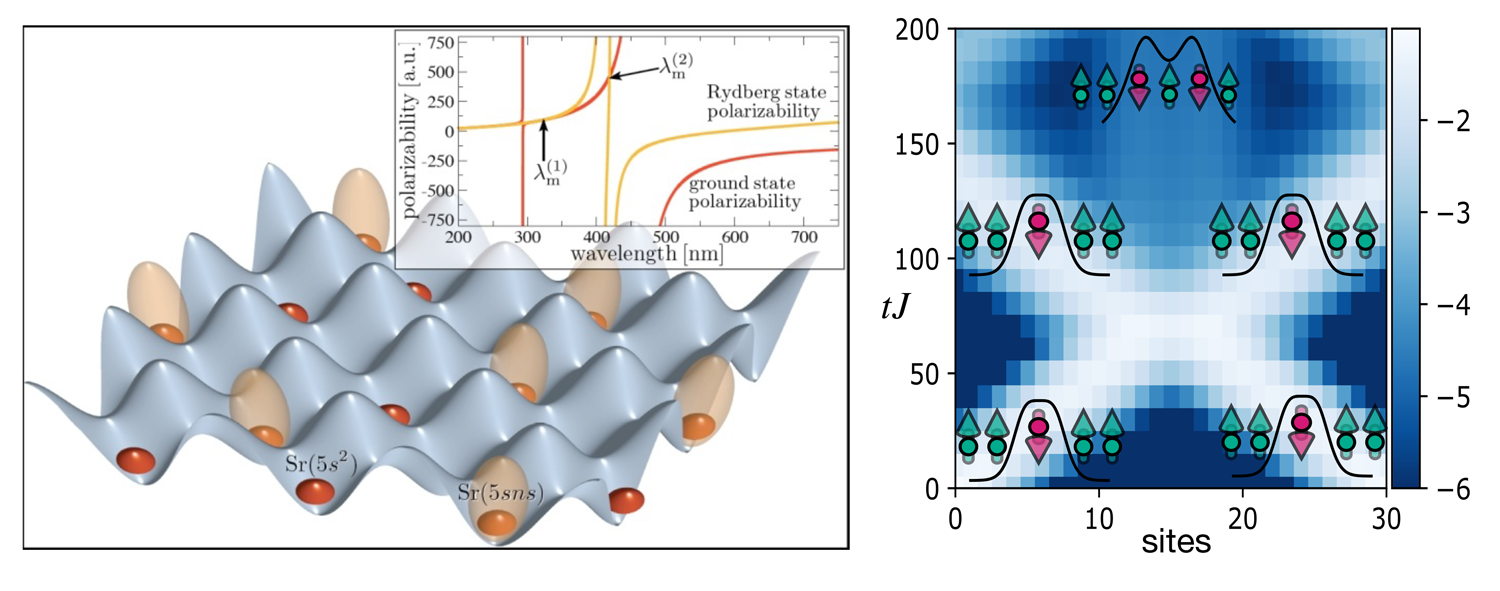Quantum Simulation and Many-body Physics
Many problems in physics, especially in low-temperature and many-body physics, are hard to understand due to the complexity of quantum mechanics. Traditional computers, even supercomputers, struggle to simulate very large quantum systems since their complexity grows exponentially with system size.
The underlying principle of quantum simulation is that such complex quantum processes can be mimicked by studying an alternate quantum system whose properties can be finely controlled and adjusted. Typically this alternate system arises from the collective behavior of hundreds of quantum particles that are currently realised on various experimental platforms, such as ultracold quantum gases, polar molecules, trapped ions, photonic systems, quantum dots, and superconducting circuits.
Quantum simulators offer a solution to better understand the emergent phenomena in many-body physics, behavior of new materials, study novel chemical reactions, potentially leading to breakthroughs in chemistry and materials science.
Principal Investigator: Rick Mukherjee

Figure: (Left panel) Rydberg simulator with alkaline-earth atoms taken from [1] in Publications. (Right panel) Simulating hadronic physics with the Rydberg simulator taken from [6] in Publications.